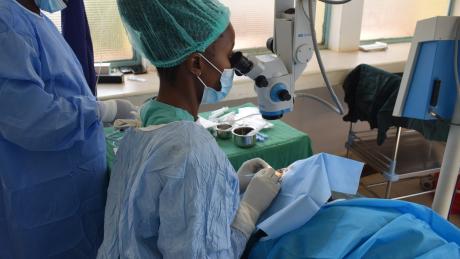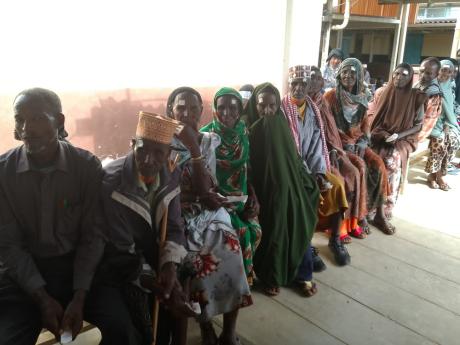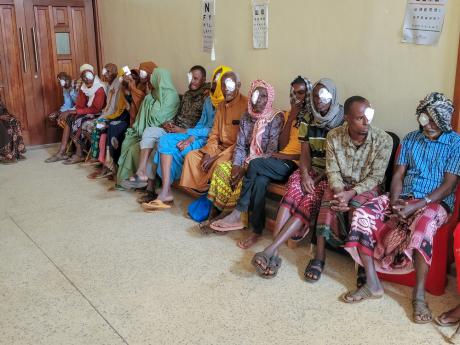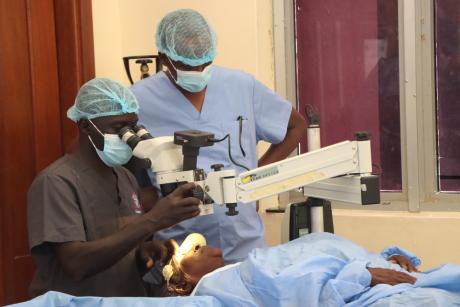
Thanks to a flight by Mission Aviation Fellowship, a team of eye specialists supported by The Fred Hollows Foundation arrived in Moyale to carry out a week-long surgical and medical eye camp. The camp aimed to address preventable blindness amongst Kenya’s under-served populations.
Story by Hillim Gitonga
Fauzia* hadn’t seen her newborn grandchild. Cataracts in both eyes had slowly clouded her vision over the years, until she could no longer care for herself, let alone recognise faces.
I had stopped doing everything I used to. I was just sitting while others did things for me

That changed the day a team of surgeons flew into Moyale aboard a MAF aircraft. Backed by The Fred Hollows Foundation and in partnership with the Ministry of Health in Marsabit County, the team was on a mission to restore sight to people like Fauzia.
“All praises to the Creator and to those who treated me,” she said after surgery. “I can now see well. Yes, I’m happy to have my vision back.”
Fauzia is one of 568 patients who were screened during the five-day eye camp at Moyale Sub-County Referral Hospital.

A total of 198 surgeries were performed, including 181 for cataracts. Other procedures included 10 pterygium removals, 4 eviscerations, 3 chalazion operations, and one tarsal plate rotation.
In addition, 370 patients received medication, and all participants took part in public health sessions focused on hygiene, trachoma prevention, and the importance of early treatment.
The eye camp was more than a series of surgeries. It was a coordinated effort to reach remote communities with quality care – and MAF played a central role.
Without MAF, getting to Moyale would have taken us days on rough roads. The flight allowed us to arrive safely, set up quickly, and focus entirely on the patients
“MAF’s support meant more time on the ground and less time lost to travel,” added County Eye Care Coordinator Amina Duba. “In places like Moyale, that time matters. It can mean the difference between someone going blind or getting help in time.”
Alongside direct care, the camp also invested in the future. Visiting specialists mentored local staff, building skills and confidence to strengthen long-term eye services in the region.
While the results were encouraging, challenges remain. Some patients couldn’t reach the hospital due to distance, and infrastructure for follow-up care is still limited.

Recommendations for future camps include expanding the duration to seven days, improving theatre equipment such as slit lamps for detailed eye exams, and establishing mobile outreach teams to reach patients in distant villages.
Despite these challenges, the impact is clear. For people like Fauzia, the camp wasn’t just about medicine. It was about reconnecting with life, family, and independence. As Amina Duba put it so well: “Restoring sight is restoring life.”
*Not her real name